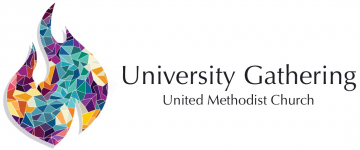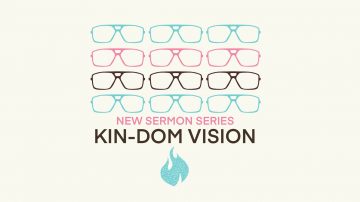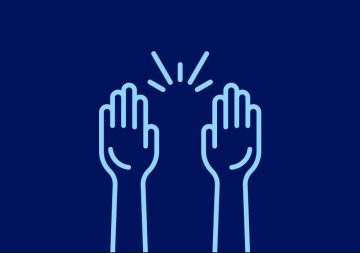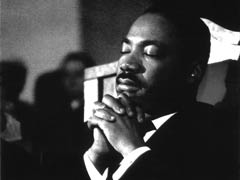Posts by Paul Ortiz
Our Evolving Vision
Kindred in Christ,
As you may be aware, last week we began a new series titled Kin-dom Vision, which serves as a type of pledge campaign 2.0. While we are very grateful to all of you that gave this past pledge season of November 2021, after all the pledges were counted, we are still short of funding our missional goals for 2022. We invite you to prayerfully consider pledging at utemple.org/give.
Yet more than a request for financial commitment, our series is really about our vision for our church and the U District. It is about our dreams for ministering to our current members, as well as the new folks we are connecting with. And this week we will reflect on how the vision God stirs up in our hearts in the present is linked to the visions our ancestors and saints received in the past, and the emerging ministry that will bless those in the future. To have kin-dom vision is to have eyes to see our kinship with the past, present, and future, all weaved together in God. I hope you will join us online for worship and in the other ways we show up in the world.
Alongside you,
Rev. Paul Ortiz
Kin-dom Vision (New Sermon Series)
Kindred in Christ,
I hope you will join us for the next three Sundays, February 13-27, for our new sermon series, Kin-dom Vision. Jesus often told provocative short stories to help his listeners and followers imagine a new kind of social reality centered on God’s love, justice, and mercy, which he referred to as the Basileia tou Theou. This phrase has been translated into the “kingdom of God,” “economy of God,” “beloved community,” and, according to mujerista and womanist theologians, the “kin-dom of God,” emphasizing Jesus’ vision of kinship. We will reflect on what this kin-dom vision means for our personal lives and for our church. And to help us do that, we have a special video that will be premiered during this Sunday’s worship about the work we do and how you can join in.
Alongside you,
Rev. Paul Ortiz
Amen!
Kindred in Christ,
Have you ever wondered what it means to say “amen”? Many people in church say this word unthinkingly at the end of prayers. It often becomes like a bumper you skip at the end of your favorite podcast or the credits you walk out on when you attend the movies. Yet what if our “amens” were not just an empty ending, but the radical beginning to our commitment to the vision God has placed in our very prayers—visions of God’s justice, peace, and creativity?
Join us this Sunday, as we reflect on the “amens” from the cosmic and diverse worship gathering in Revelation (7:9-12) and conclude our series, Let Us Pray!
Alongside you,
Rev. Paul Ortiz
What a Friend We Have in Jesus
Kindred in Christ,
As we continue in our worship series, Let Us Pray, one of my favorite hymns, What a Friend We Have in Jesus, comes to mind. It was originally written by preacher Joseph M. Scriven as a poem in 1855. It serves as a reminder of the power of prayer in our lives.
Whatever burdens or griefs you may carry at this time, I invite you to read the poem below, and open yourself to the mysterious and sustaining connection of the Risen One with you.
What a friend we have in Jesus
All our sins and griefs to bear
And what a privilege to carry
Everything to God in prayer
Oh, what peace we often forfeit
Oh, what needless pain we bear
All because we do not carry
Everything to God in prayer
Have we trials and temptations?
Is there trouble anywhere?
We should never be discouraged
Take it to the Lord in prayer
Can we find a friend so faithful
Who will all our sorrows share?
Jesus knows our every weakness
Take it to the Lord in prayer
Alongside you,
Rev. Paul Ortiz
Empowerment and MLK
Kindred in Christ,
I once had a therapist that was an ex-nun. She was a progressive person of faith and considered mental health her present ministry. I greatly appreciated her on many levels.
One of the valuable things I learned from her was the importance of remembrance—both in my actions and prayer. She suggested that when I felt anxious, I should think back to a time when I felt similarly, and ask myself, “Did things turn out as bad as I had feared?”. Usually, the answer was “no.” Moreover, she invited me to reflect upon what had helped me in those past situations. It usually involved turning to prayer and reaching out to others. Remembering how God and my community had showed up in the past empowered me to turn to them in the present and caused me to be hopeful about the future.
As we join our nation in remembering the legacy of Martin Luther King Jr., and the many ways God used him to help bring about greater racial equity, may we connect it to the many ways God is still calling us to advance the work of justice and liberation today. This Sunday we will explore how we can utilize prayer to remember God’s mighty works in our world, nation, and personal lives, and how this practice frees us to be part of what God is still doing today. I hope you will join us in celebrating Martin Luther King Jr. and continuing in our series, Let Us Pray!
Alongside you,
Rev. Paul Ortiz




